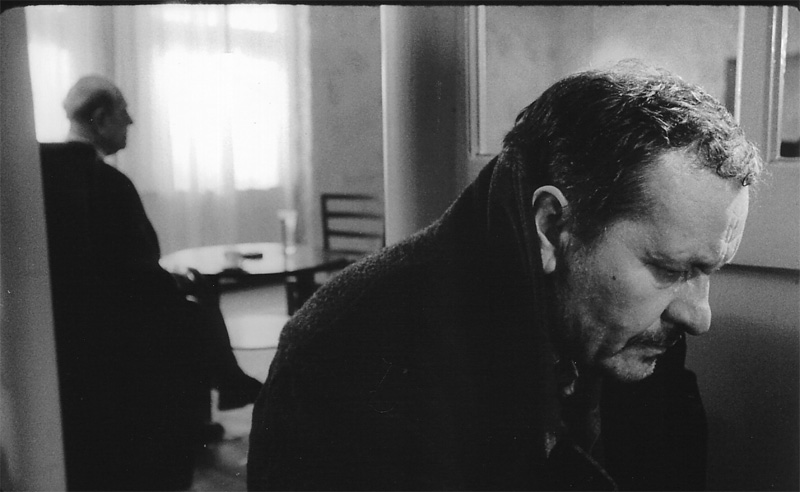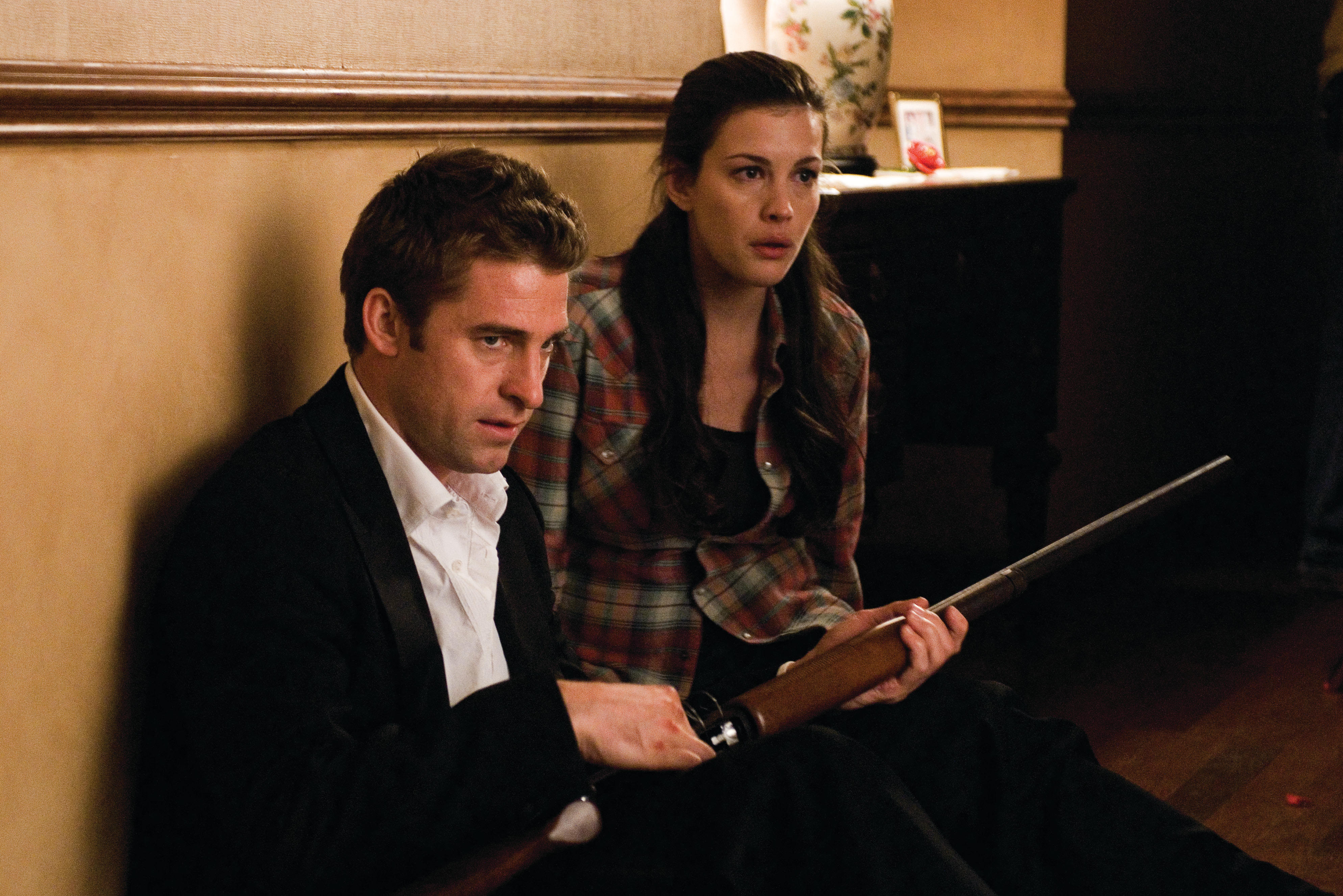It is a strange disappointment that Béla Tarr follows up his grandiose 2000 Werckmeister Harmonies, a bleak but bold metaphysical idyll to pre-millennium tension, with this almost trifling story of one man’s guilt filtered mechanically through a funereal noir prism—a regression of sorts for our most Olympian of film auteurs. Tarr’s gift has always been to use his refined but subjective artistry to convey and dignify the wants, needs, and customs of provincial people, but he only succeeds here at communicating a conceptual sense of the moral restlessness that grips a man after he witnesses a murder. Shooting in Portuguese locales, which stand in for no place in particular, and having his actors tragically overdub their lines into a number of different languages, Tarr struggles to adapt to an outmoded genre, and in the end produces his least personal work to date. The plot of this 2007 film concerns the moral quandary of a middle-aged railroad worker, Maloin (Miroslav Krobot), who steals a suitcase stuffed with British sterling. Perhaps sensing the wafer-thinness of Georges Simenon’s source novel, which concerns the efforts of an investigator to retrieve the missing sterling, Tarr allows his camera to literally dance around the flimsily contextualized confrontations between Maloin and his wife (a largely wasted Tilda Swinton) and daughter, but often settles for clinically peering at them and others from a distance or from the back of the head.
Man From London: A Sad Waste of Tilda Swinton








